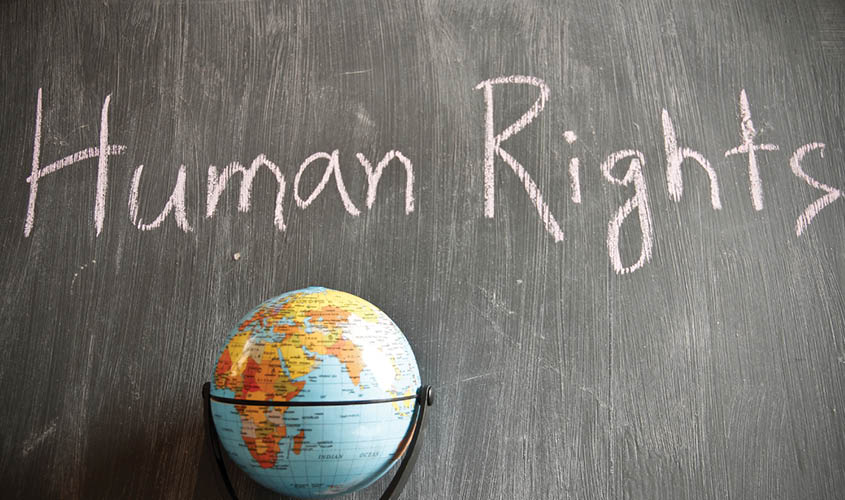Trump is trying to keep his country’s citizens anchored to a dying industrial past.
The surest way to lose power is to use too much of it. This is a lesson that the United States under President Donald Trump may soon be getting, as he seeks to leverage what he believes to be the existing strengths of his country into ensuring the regaining of its dominance in lines of production that had domestically become—or soon would be—extinct. Rather than trying to retrain his country’s citizens so that they gain mastery over the processes that will dominate the future, Trump is trying to keep them anchored to a dying industrial past. The imposition on all Mexican exports to the US of a 5% tariff that could increase to 25% within October may cost the Republican Party the White House in 2020, because of its reckless disregard of overall national interests in the narrow pursuit of sectional gains. US consumers will suffer as much as Mexican producers from the tariffs. Since the close of the 1940s, US consumers have been free to buy whatever goods they prefer from across the world. Now Trump is telling them to buy only US-made goods instead, even where domestic production of the items sought may be zero. Despite its socialist rhetoric, the Lopez Obrador regime in Mexico City has been doing all that it can to meet the demands
And what of the United Kingdom of Great Britain & Northern Ireland, which is the home of the Magna Carta and the doctrine of habeas corpus? After having to hide from police for an extended period of time over charges that have clearly been motivated by actions based on the belief that the press is free in democracies, Wikileaks founder Julian Assange has been tossed into jail by a British court for 52—repeat, 52—weeks for allegedly jumping bail in a case involving two ladies in Sweden, who have accused him of assault. The Obama administration accused Assange (in secret) of committing that most heinous of offences, releasing images that showed US Air Force pilots killing civilians with the unfeeling abandon that former Alaska Governor Sarah Palin demonstrated when she shot dead unwary moose while comfortably ensconced in a helicopter circling the beasts. Sequestered inside the Ecuadorian embassy building until he was brought out weakly protesting his treatment, deprived even of access to the internet during his final months in the embassy, the UK Home Secretary appears to believe that there is no human rights violation in such treatment, nor in Assange spending each day and night in the knowledge that the US administration seeks to forcibly bring him to that country for having exposed atrocities that the government itself should have admitted and punished. What a lot has changed in the US. Rewind to those who reported on the My Lai massacre in Vietnam. They were honoured—and rightly so—for exposing that crime. Of course, ultimately Medina, the Marine responsible for the battalion that committed the atrocity, was let off without charge, as were all others who participated in the mass murder of innocents, with the exception of William Calley, who was the only corpsman found guilty of having directly murdered nearly two dozen Vietnamese children, women and men. President Richard Nixon was naturally aghast that a US serviceman should get sent to prison over such a trifle, given the hundreds of thousands whose lives were lost as a consequence of the bombings in Cambodia, Laos and Vietnam ordered by Kissinger and him, and soon afterwards, pardoned Calley. The My Lai massacre joined the lengthy list of war crimes that have been committed with impunity. There were many incidents in Vietnam such as My Lai, just as there must have been several incidents later of the type brought before the public by Julian Assange. However, media within the Atlantic alliance seems to have been uninterested in finding out what they were. These crimes have been buried amidst the chatter raised in US and West European media about the atrocities (both real and imaginary) committed by nations not allied to the US, the way Saudi Arabia or the UAE are as they mow through the Yemeni population unhindered. Of course, the Saudis, in particular, understand the chemistry of the US administration, and never forget to throw millions of dollars into US coffers through deals with every cluster of bombs they drop on Yemenis.
Preaching is easy. What is difficult is practice, and until the declared ideals of countries which incessantly preach to others about human rights are followed by them in practice, they will not be taken seriously. At different ends of the guilt spectrum, a William Calley and a Julian Assange show up the hypocrisy of those “human rights warriors” who regard themselves as beyond the reach of the standards they prescribe for other countries.

